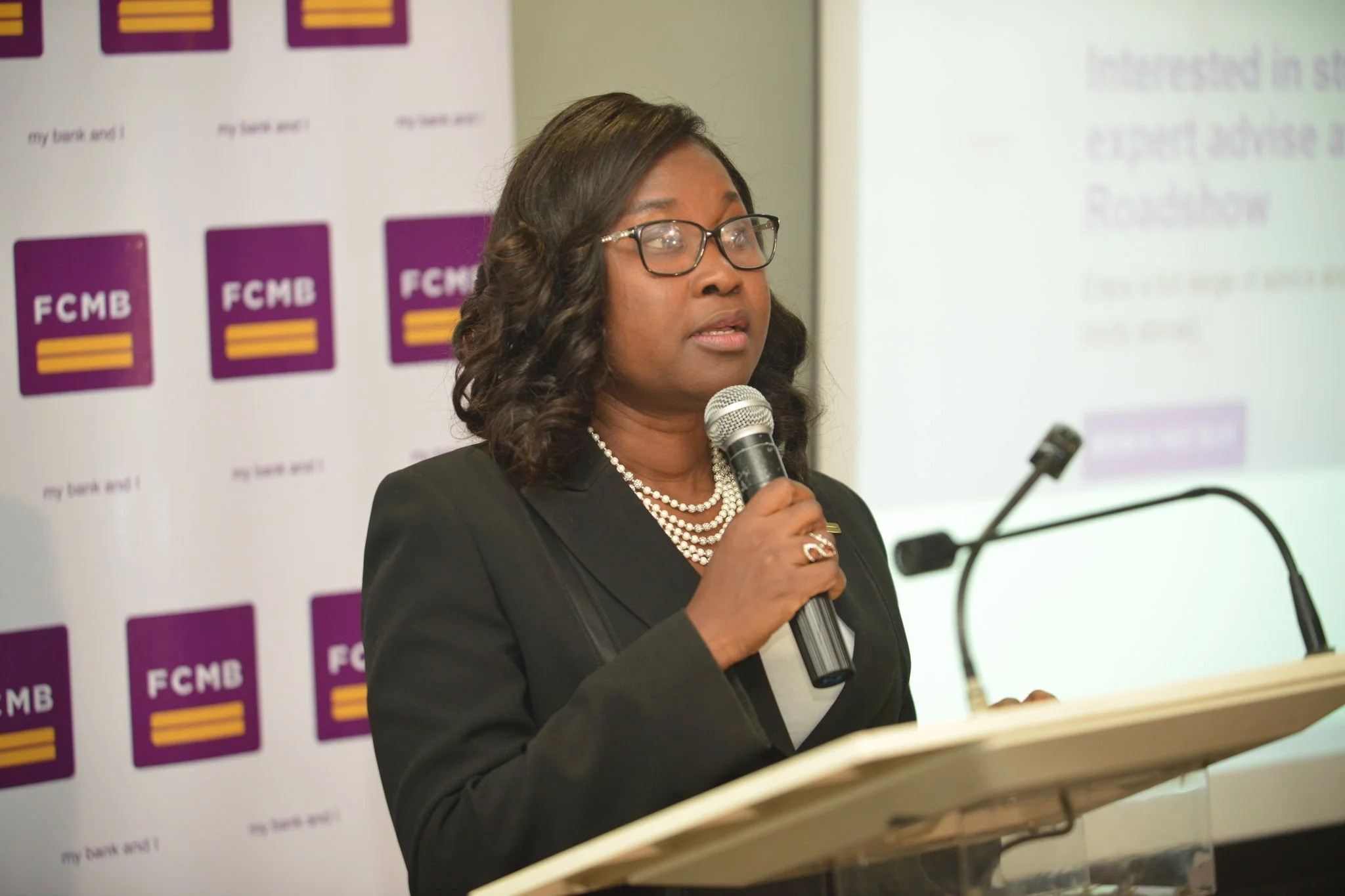The recent appointment of Mrs Yemisi Edun as the Managing Director by the Board of Directors of First City Monument Bank (FCMB) Limited represents a significant milestone in bringing about a gender diverse workforce at the senior management and board levels in Nigerian banks. The appointment also reinforces a recent trend in the banking sector that has seen women emerging as CEOs of commercial banks.
At the last count, six out of the 23 commercial banks in the country, representing 26 per cent, have women in CEO positions. Apart from Mrs Yemisi Edun in FCMB, Guaranty Trust Bank has Mrs Miriam Olusanya, Fidelity Bank has Mrs Nneka Onyeali-Ikpe, and Citibank Nigeria has Mrs Ireti Samuel-Ogbu. Others are Mrs Halima Buba of SunTrust Bank Limited and Mrs Tomi Somefun of Unity Bank Plc. Also, the number of women in other top management positions in Nigerian banks is on the rise.
Although there are currently no specific legal requirements for gender diversity in Nigeria’s legal system, the gender gap in the country’s banking sector is indeed closing. Nonetheless, regulations issued by the Central Bank of Nigeria (CBN), the Securities and Exchange Commission (SEC) Code of Corporate Governance and the 2018 Nigerian Code of Corporate Governance (CCG) provide assurances that the number of women holding key positions in the banking sector will only continue to grow.
In the light of FCMB’s bold move to appoint Mrs Yemisi Edun as its substantive MD/CEO after serving as acting MD of the bank for a few months, there is no gainsaying that the bank is committed to both promoting gender equality and women’s empowerment. The composition of its board of directors and its executive management reflects this. The bank’s board currently has two female Independent Non-Executive Directors: Mrs Mfon Usoro and Ms Olayemi Keri, while another female.
It has been said that having just one female member on the Board of Directors of an organisation is an indication of weakness. Such arrangement is also viewed as tokenism because it is quite hard for one person to challenge existing corporate behaviour. FCMB stands tall among its peers in this respect because, unlike other institutions, women are well represented on its Board of Directors. Undoubtedly, the FCMB Group is now a model corporation in Corporate Nigeria.
Notably, a study by McKinsey & Company analysed more than 1,000 companies in 12 countries and concluded that gender-diverse companies are more likely to outperform their national industry average in terms of profitability. With three women on the most influential decision-making areas of the bank, the future can only be rosy. Given the amount of information needed to understand and govern today’s complex business environment, a diverse and gender-balanced board appears to be the best guarantee for inclusive growth.
Women are also well represented in the day to day running of the bank. Apart from Mrs Oluwatoyin Olaiya, who serves as Executive Director and Chief Risk Officer, there is also Ms Felicia Obozuwa, Divisional Head, Corporate Services, Mrs Folake Fajemisin, Divisional Head, Corporate Banking, Mrs Funmi Adedibu, Company Secretary and General Counsel, and Mrs Rolayo Akhigbe, Divisional Head, Transaction Services.
FCMB easily meets the minimum of 30 per cent female representation on boards of Nigerian commercial banks mandate of the CBN.
The choice of Mrs Yemisi Edun as the top decision-maker in the bank is undoubtedly no happenstance. She fits perfectly into the category of qualified women with the right skillset and experience to serve on corporate boards. Her pedigree, backed by work experience spanning nearly 35 years, is of the highest quality possible. She began her career with Akintola Williams Deloitte (member firm of Deloitte Touché Tohmatsu) in 1987, focusing on corporate finance activities. She was also involved in the audit of Banks and Other Financial Institutions. She joined FCMB in the year 2000 as Divisional Head of Internal Audit and Control before assuming the role of Chief Financial Officer of the bank.
Mrs Yemisi Edun holds a bachelor’s in chemistry from the University of Ife, Ile-Ife, and a master’s in international accounting and finance from the University of Liverpool, United Kingdom. A fellow of the Institute of Chartered Accountants of Nigeria (ICAN) and a Certified Financial Analyst, CFA®️ Charter holder, she is also an associate member of the Chartered Institute of Stockbrokers; an associate member of the Institute of Taxation of Nigeria; a member of Information Systems Audit and Control, U.S.A; and a Certified Information Systems Auditor.
FCMB is already reaping the benefits of advancing gender diversity beyond its immediate workplace. For example, the board of directors of African Development Bank (AfDB) recently approved a loan of $50 million for the bank. The AfDB feels more comfortable channelling the funds meant for Nigerian enterprises and women-empowered businesses in the agribusiness, manufacturing, healthcare, and renewable energy sectors through a gender-sensitive financial institution.
And with 30 per cent of the funds earmarked for underserved women-empowered businesses due to the effects of the rampaging Covid-19, it is only fair that a women-friendly financial institution like FCMB is selected to manage the process of disbursement.
In his comments, Stefan Nalletamby, AfDB’s Director of Financial Sector Development, said, “The African Development Bank is pleased to support FCMB’s strategy to become a dominant player in addressing the funding needs of women-empowered and local enterprises.”
AfDB will also provide a technical assistance grant of $200,000 through its Affirmative Finance Action for Women in Africa (AFAWA) initiative, supported by the Women Entrepreneurship Finance Initiative, as the project aligns with the objectives of AFAWA, which aims to improve gender inclusivity by improving access to finance for women entrepreneurs. The journey towards gender equality is truly and well underway.
The role of women in societal progress is being undermined by the viewpoint that men must remain the leaders in society. Such perspective is equally responsible for relegating women to the background and limiting their participation in top leadership positions. Although Chief Bola Kuforiji-Olubi broke the glass ceiling when she was appointed as the chairman, board of directors of United Bank for Africa (UBA) in 1984, it is only now that significant changes are being recorded and there is a need to sustain and even accelerate the changes.
The days of tokenism in appointments of women into boards and the incredible disparity in the male to female ratio of directors in Nigeria must be reversed, especially when studies after studies have conclusively shown the positive correlation between gender diversity on the board and financial performance. Corporate Nigeria must begin to move away from its patriarchal tendency and embrace gender balance in the composition of boards of directors.
The World Economic Forum (WEF) says that the overall global gender gap can only be closed in 108 years with current trends. This is unacceptable. It is, however, heartening to note that the CBN Governor, Godwin Emefiele, has been consistent in affirming CBN’s commitment to the promotion of gender diversity in the workplace, empowering women and increasing their active participation in the economy.
THIS DAY NEWS





2 Comments